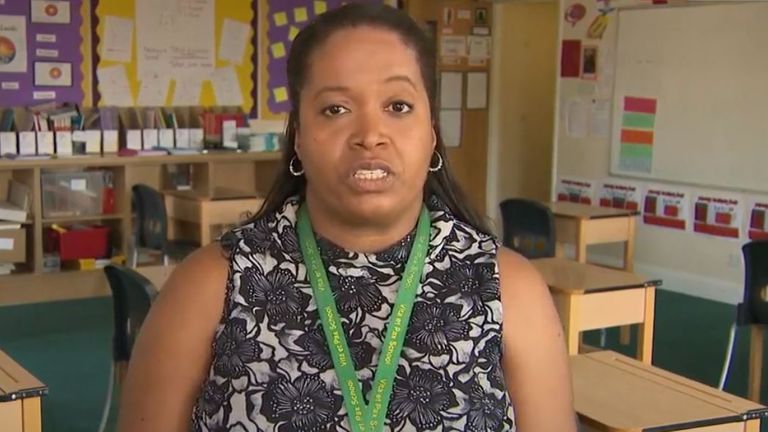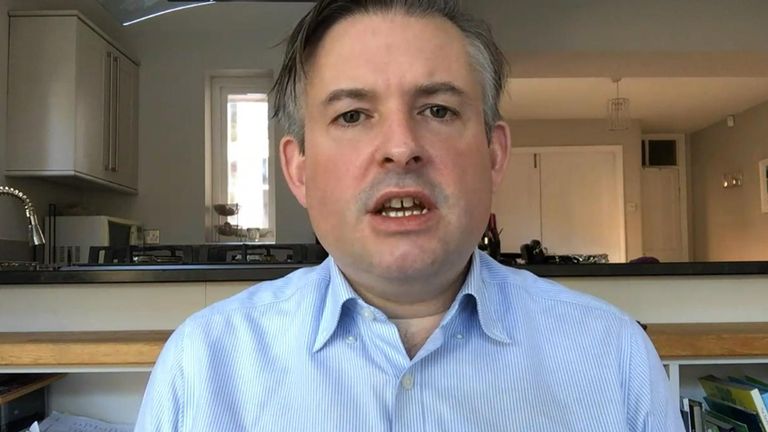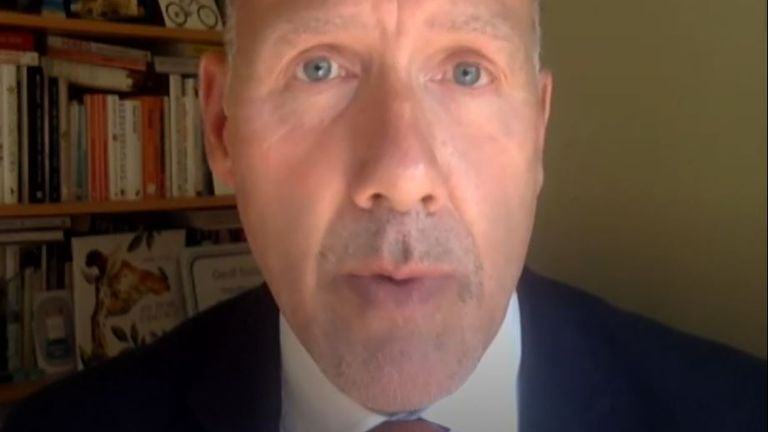Boris Johnson has been urged to boost the government's coronavirus test and trace scheme in order to safely reopen schools next month, with calls for teachers and students to be tested as often as once a week.
The prime minister has declared it is a "national priority" to get all children back into the classroom from the start of the new academic year in September.
But with scientific advisers having warned that "trade-offs" may be needed, impacting businesses or social lives, concerns remain about whether sufficient coronavirus safeguarding measures are in place.
Allana Gay, headteacher at the Vita Et Pax Prep School in north London, told Sky News "the most important role of a teacher is safeguarding".
She said keeping staff, students and their families safe was vital – and the government should "get things like track and trace working really well".
Advertisement
Children's commissioner for England Anne Longfield echoed the message, calling for pupils and teachers to be able to get tested as often as every week – even if they do not have COVID-19 symptoms.
In a newspaper article published on Sunday, Mr Johnson wrote "social justice demands" that classrooms are full again and that education is crucial for children's welfare and future – especially the most disadvantaged.
More from Boris Johnson
He warned of the "spiralling economic costs" of parents and carers being unable to work, and added: "Keeping our schools closed a moment longer than absolutely necessary is socially intolerable, economically unsustainable and morally indefensible."
It is understood Mr Johnson favours only closing schools as part of any future local lockdowns as a last resort.

Ms Longfield said testing for teachers and pupils needed to be a priority ahead of schools reopening.
"I think it needs to be as regular as it needs to be, to ensure that the infection is caught and identified as quickly as possible and then the tracking system can move on from that," she told Times Radio.
Labour's shadow education secretary Kate Green also told the broadcaster: "I do think the government could be doing more to support them [teachers] – particularly, for example, making sure we've got a really robust test and trace system in place.
"It's really, really important that we don't write off a generation of COVID children – they need to be back in class the whole of our futures depend on this."
But schools minister Nick Gibb said this week that the government could not "decree" that classroom education would be prioritised, instead saying decisions would be made by local health chiefs.

However, a Number 10 source said on Saturday that Mr Johnson's expectation is that schools would be the last sector to close, with businesses being shut first in the event of severe local lockdowns.
"The PM has been clear that businesses including shops, pubs and restaurants should be forced to close first, with schools remaining open for as long as possible," the source said.
Professor Chris Whitty, the chief medical officer for England, warned last week that the nation has "probably reached near the limit or the limits" of what can be done to reopen society safely.
And Professor Neil Ferguson, whose modelling led to the decision to impose the lockdown, suggested ministers would need to "row back on the relaxation of restrictions" to allow a full-time return to schools while keeping the virus under control.
Jeremy Farrar – director of the Wellcome Trust and a member of the government's advisery group SAGE – also wrote in The Observer: "As we head into autumn we will be forced to make tough choices in order to keep transmission down while restarting the economy, increasing employment and protecting public health.
"There are no easy answers, but one thing is clear: Reopening schools must be the priority."

[contf]
[contfnew]

sky news
[contfnewc]
[contfnewc]





